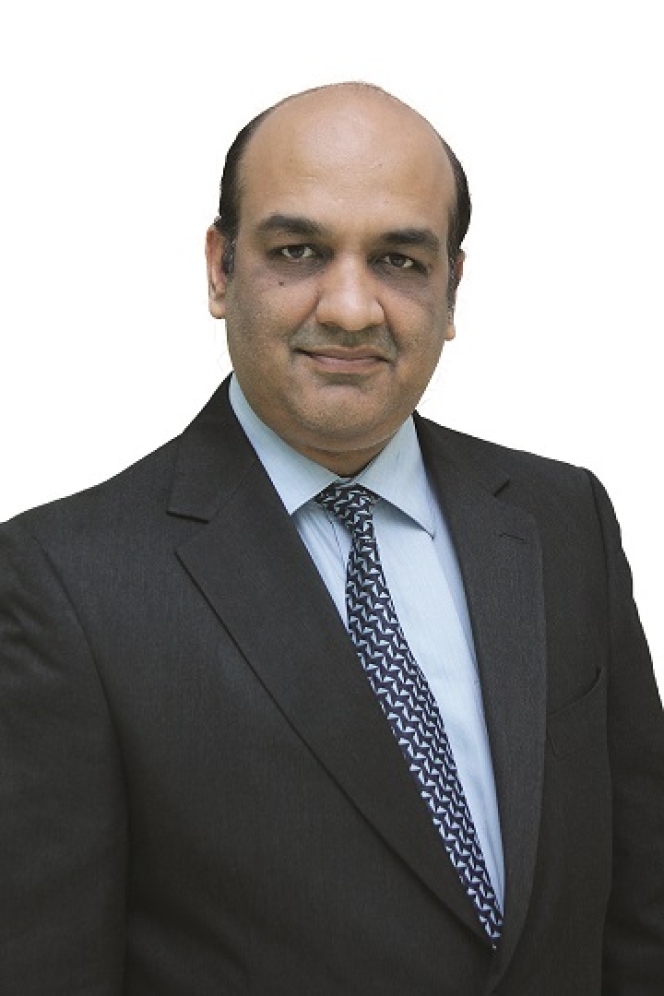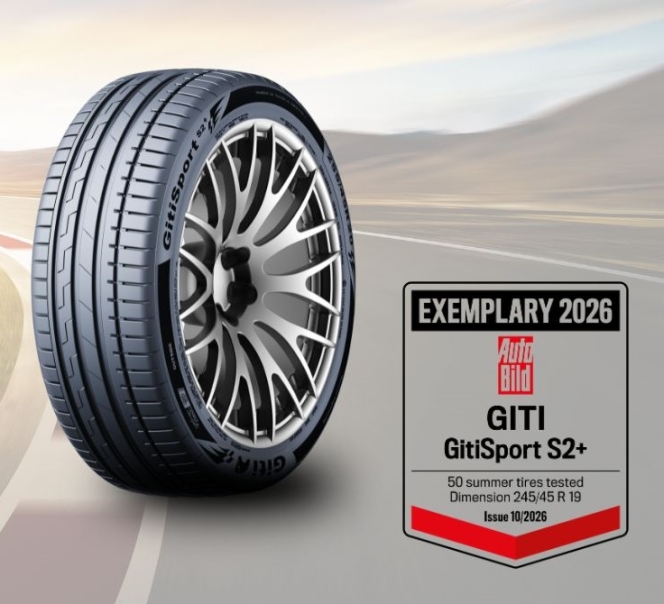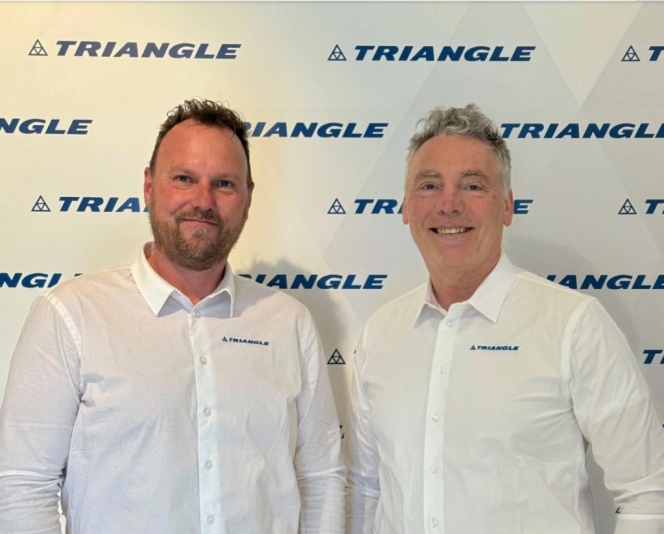Navigate Cost Squeeze And Tepid Demand: CRISIL’s Sethi On What Lies Ahead
- By Sharad Matade
- December 23, 2024

India’s tyre industry is bracing for a tough fiscal year, weighed down by sluggish demand, volatile raw material prices and muted export growth. Revenue is forecast to expand just 7-8 percent – supported by modest price hikes and a marginal rise in volumes – marking a second straight year of single-digit growth. However, operating margins are set to contract sharply as natural rubber prices remain elevated despite recent moderation. In a wide-ranging discussion, Anuj Sethi, Senior Director at CRISIL Ratings, unpacks the factors shaping the sector, from price pressures and replacement demand to global headwinds and evolving trade dynamics.
How would you characterise the current fiscal year for the Indian tyre industry, considering its challenges and opportunities?
With volume expected to grow just by about 3-4 percent due to sluggish demand, overall revenue growth will remain in single digit for the second straight year, this fiscal. On the other hand, high raw material prices, especially of natural rubber, rose sharply over the past 12 months and have only recently begun to moderate. To a moderate extent, tyre manufacturers are increasing tyre prices in the replacement market to offset the impact of higher input prices, albeit operating profitability will still be impacted this fiscal.
The report mentions 7-8 percent revenue growth this fiscal year, supported by a 3-4 percent increase in realisations and volume. What specific factors could push growth beyond this forecast, and what risks might undercut it?
While realisation growth due to price hikes being undertaken by tyre manufacturers is a certain given sharp increase in natural rubber prices, higher than projected volume growth could take the growth higher than expected. With about 2/3rd of the domestic demand
coming from replacement segment, and it being the primary volume driver, any significant decline in that demand can impact the growth forecast other way.
Given that replacement demand is the primary volume driver, how do you assess the longevity of this demand surge in the context of evolving consumer preferences and vehicle usage patterns?
The replacement demand is expected to sustain over the medium term driven by the strong automotive sales achieved in previous fiscals.
With operating profitability projected to drop 300 basis points, what contingency measures are tyre makers considering beyond gradual price increases to mitigate this impact?
The price of natural rubber, which constitutes about half of the raw materials, continued to surge sharply in the first half of fiscal 2025. However, ability to pass on this increase is limited due to modest volume growth. Small price hikes and continued focus at improving operating efficiencies on an ongoing basis is another way to offset the impact to some extent.
Natural rubber prices have been highly volatile, reaching record highs and then falling to around INR 170 per kg. What is your outlook for natural rubber prices in the near to medium term, and what factors will likely influence their movement?
The sharp rise in natural rubber prices is due to a global shortage caused by inclement weather in major producing countries such as Thailand and Vietnam, which account for about half of the global production. Going forward, increase in supply with improving hectarage and slowdown in global economies is likely to drive correction in international rubber prices. In the last couple of months, some moderation in natural rubber prices has happened.
China has a surplus in crude oil-derived raw materials, including carbon black and other chemicals. Do you anticipate this surplus impacting global prices for these commodities, and how might Indian tyre makers benefit or face challenges as a result?
Share of natural rubber in tyre manufacturing is 47 percent, while carbon black accounts for ~20-22 percent. Should carbon black prices remain under control, it will benefit domestic tyre manufacturers.
Export growth is expected to remain muted at 2-3 percent. How does the current geopolitical climate, including sanctions or trade restrictions, further complicate Indian tyre makers’ access to markets in North America and Europe?
Export growth is expected to remain sluggish due to challenging business conditions in US and Europe. However, certain segments like off-the-road tyres are beginning to see better prospects as stocks with dealers are moderating. This could help players with presence in the off-the road- tyre segment.
Exports to key markets such as North America and Europe are under pressure due to economic challenges and unviable operating costs, leading to plant shutdowns in regions like US, Europe and Israel. Is the Indian tyre industry at risk of facing similar challenges, or does it have structural advantages that mitigate these risks?
Indian players are better placed compared to some of the western peers due to comparatively lower cost of operations, though operating profitability has come under pressure this fiscal because of higher imported rubber prices. Also, Indian players have flexibility to supply in small batch sizes unlike Chinese peers, and hence this also works to their advantage, more prominently in higher margin segments such as off-the road tyres.
Have tyre makers explored new international markets or alternative trade routes to counter supply chain disruptions and higher freight costs?
Not really; to circumvent the difficult environment around the Suez Canal, vessels are going around the Cape of Good Hope, adding 2-3 weeks and additional freight cost on exports. Some of the costs are being shared with the customers.
The report references Extended Producer Responsibility (EPR) regulations. How significant is the financial and operational burden of compliance for tyre makers, and what progress has been made in addressing this?
Adoption of EPR regulations is not expected to have a very sizeable impact on profitability, though it will lead to investments in strengthening processes and in technology.
Giti Tire Unveils Next-Generation GitiSportS2+ Following AutoBild Test Success
- By TT News
- March 05, 2026

Giti Tire has launched its new ultra-high-performance GitiSportS2+ tyre, following an outstanding result in the AutoBild 2026 Summer Tyre Test, where it received one of the most prestigious independent endorsements in Europe. Rated as exemplary by the leading German publication, the tyre secured fourth place overall out of an initial field of 50 competitors. The evaluation praised its exceptional value for money, impressive driving dynamics and substantial safety margins.
Tested on a BMW 5 Series using the 245/45R19 size, the tyre initially shared fourth position based on wet and dry braking performance, recording a total stopping distance of 42.5 metres. It maintained this high standard across 12 additional assessments, ultimately ranking among the top five alongside several premium manufacturers. The new model is scheduled to be available from spring 2026, launching in 19 sizes covering rim diameters from 17 to 20 inches, widths between 225 and 255 and aspect ratios from 35 to 55.
Designed for sporty cars and powerful SUVs, the GitiSportS2+ features a newly engineered compound that reduces wet braking distances by eight percent and dry braking by two percent compared to its predecessor. It also achieves the highest possible EU Wet Grip label rating of ‘A’. In line with the manufacturer’s broader strategy, the tyre bears the AdvanZtech EV Ready sidewall marking, indicating its compatibility with internal combustion engines, mild hybrids, plug-in hybrids and battery electric vehicles.
During the initial rollout, many existing sizes of the original GitiSportS2 will remain on the market, ensuring continued coverage across the sport vehicle segment. Development took place at Giti’s European R&D Centre in Hannover, with testing and fine-tuning conducted at tracks in UK and Spain. The project leveraged the company’s AdvanZtech technology, a globally integrated research and development system.
Fabio Pecci-Boriani, Deputy General Manager – Product Planning PCR and LTR, Giti Tire R&D Centre (Europe), said, “The new GitiSportS2+ is testimony of the achievements that our engineers, testers and manufacturing facilities have been able to deliver in the area of performance while retaining the sustainability, endurance and mileage criteria that are important to the daily driver. To launch a tyre off the back of an ‘exemplary’ rating in AutoBild is nothing short of sensational; we are thrilled that one of the leading automobile titles in Europe has been able to validate and confirm our latest development and we are excited to share this news with our trusted customers.
“The target criteria for the GitiSportS2+ was to deliver further improvements in dynamic driving, enhanced control on wet roads with precise and exciting control on dry roads, all while maintaining the mileage and energy efficiency of the previous generation. Sportiveness is at the heart of the tyre with a particularly stiff design that contributes to stability at high speeds as well as in cornering. The increased grip performance goes is more precise, firm, predictable and constant.”
Halfords Appoints Jessica Jones As Director Of Fleet Solutions
- By TT News
- March 05, 2026

Halfords has signalled a strategic push into the B2B mobility market by naming a new leader for its fleet division. Jessica Jones is set to become Director of Fleet Solutions from the start of April 2026, tasked with accelerating growth in this area. She arrives with considerable expertise in the fleet, leasing and B2B mobility sectors, having spent her career guiding national account teams and forging strong customer relationships that have driven commercial success.
Her background encompasses strategic fleet management, business expansion and the creation of adaptable service models for corporate clients. Prior to this appointment, Jones served as Sales Director at Sixt UK and held the position of Director of National Fleet Sales at ATS Euromaster. Her recruitment underscores Halfords' commitment to developing its fleet services as a core area for expansion.
The company aims to support businesses by utilising its extensive network of garages to provide integrated maintenance and mobility services. These offerings are designed to maximise vehicle availability and assist companies in controlling operational expenditure.
Adam Pay, Managing Director of Garages at Halfords, said, “Fleet is a significant growth opportunity for Halfords, and Jess brings deep sector expertise alongside a strong track record of building high-performing teams and customer partnerships. As fleets face increasing cost pressures and operational complexity, our national scale and service capability position us strongly to support customers. Jess’s leadership will help us accelerate momentum and unlock further opportunities in this important market.”
Jones said, “I’m delighted to be joining Halfords at such an exciting point in its growth. The business combines a trusted consumer brand with a powerful national servicing network, creating real potential in fleet. I’m looking forward to working with colleagues and customers to build on the strong foundations already in place and further develop a differentiated, customer-focused fleet offering.”
Triangle Tyre Appoints Federico Parmesan As European OTR Technical Manager
- By TT News
- March 04, 2026

Triangle Tyre has significantly strengthened its European off-the-road operations with the appointment of Federico Parmesan as the new European OTR Technical Manager, a position he assumed on 1 March 2026. This strategic appointment represents a key milestone in the company's ongoing efforts to enhance its technical capabilities and expand its market presence across the continent's specialised tyre sector.
Parmesan brings more than three decades of tyre industry experience to his new role, with particular expertise concentrated in OTR and earthmoving applications. His extensive background encompasses not only deep technical knowledge but also a comprehensive understanding of the challenges faced by dealers and end-users operating in demanding environments. This combination of technical proficiency and practical insight positions him to effectively bridge the gap between product development and real-world application requirements.
In his new capacity, Parmesan will work closely with Triangle's partner network throughout Europe, providing support for both aftermarket and original equipment segments. His responsibilities include strengthening the company's field application expertise and contributing directly to the continued development of the OTR product portfolio. These efforts aim to deliver enhanced value and service to partners across the region.
The appointment reflects Triangle's strategic priority of reinforcing its technical structure to support ambitious growth objectives in the European OTR segment. The company seeks not merely to consolidate its existing market share but to achieve sustainable expansion while elevating support levels for its partners. Parmesan's extensive experience, energetic approach and positive attitude are expected to prove invaluable assets as Triangle pursues these goals and strengthens its position within the competitive European market.
ATF Tyres Appoints Rajesh Vyas As Vice President Of Sales And Marketing
- By TT News
- March 03, 2026

ATF Tyres, one of India’s leading manufacturers of off-highway tyres, has announced the appointment of Rajesh Vyas as its new Vice President of Sales and Marketing. Vyas brings over 25 years of global experience to the role, having worked across diverse international markets to build high-performance sales teams and enhance distribution networks.
His professional background includes leadership roles in brand positioning and product portfolio expansion within competitive sectors. Prior to joining ATF, Vyas served as Vice President at Rubber King Tyre Group. He also held key positions at Balkrishna Industries Limited as Head of Mining Tyres for India and spent a decade at Apollo Tyres Ltd as Business Head for Off-Highway Tyres.
With the company working to expand its footprint in the agricultural, industrial and OTR segments worldwide, Vyas’s strategic leadership and commercial insight are expected to support ATF Tyres in delivering performance-driven solutions across multiple regions.







Comments (0)
ADD COMMENT